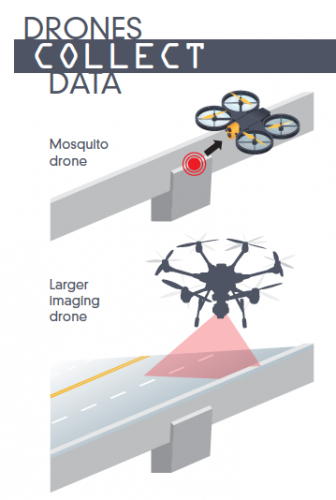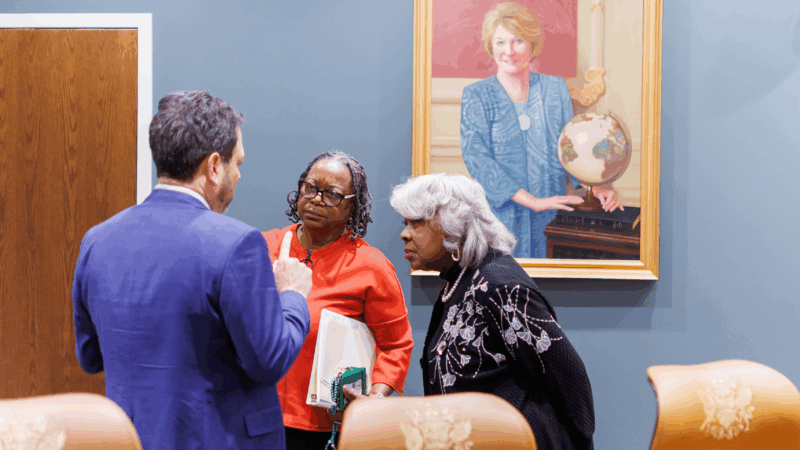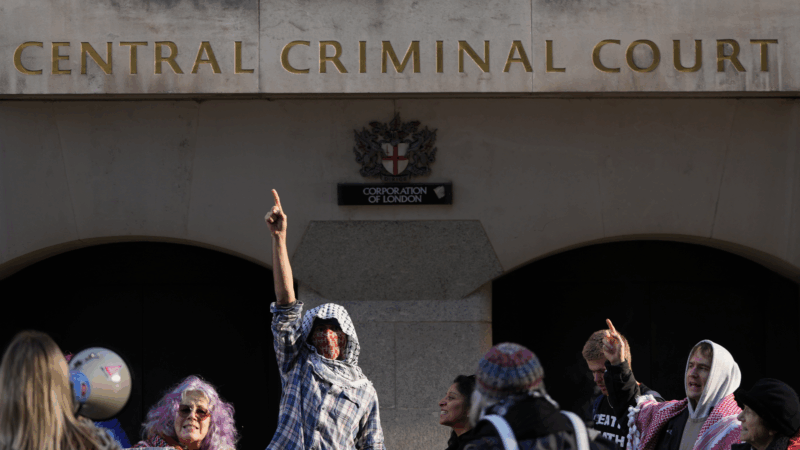For Aging Bridges, UAB Engineer Wants to Send in the Drones
Many of Alabama’s bridges are in bad shape. According to the U.S. Department of Transportation, there are about 16,000 structurally deficient bridges in Alabama. It’s a problem here and across the country. Many of the bridges are just old, and many were built when traffic and cars were lighter. But inspecting bridges takes time, skill and money. Now, a University of Alabama at Birmingham engineering professor is using a $500,000 grant from the National Science Foundation to develop a solution using drones.
Practicalities
It takes a long time to inspect any good-sized bridge, and there aren’t enough specialists or budget dollars to do them all. UAB engineering professor Nassim Uddin says that’s dangerous.

“We see a number of collapse of bridges recently, in Minneapolis, in Washington and so forth.”
Uddin says inspections become trickier and are required more frequently as bridges age. But he thinks drones could help.
“That was the challenge,” he says. “How can we use cheaper, very light sensors [to] give you a similar level of precision?”
The Plan
The idea is to mount sensors on bridges, then send drones out to upload information about the bridges’ health from the sensors. The drones themselves could scan the structures where the sensors can’t reach, too.
“Having the drones now, we don’t have to put hundreds and thousands of sensors sitting on the bridge and using lots of electricity and collecting the data day in and day out,” says Uddin.
Drones could be used for regular bridge inspections, or after storms or earthquakes.
Uddin is collaborating with researchers in Ireland and England, where he says there are fewer restrictions on testing drones in high-traffic areas. He hopes to run field tests in England this year. He’s also recently applied for a separate grant to develop the same drones to inspect buildings, homes and other structures after storms or earthquakes. Those drones could also serve as hotspot communications networks in disaster zones.
FBI releases description of suspect, increases reward in Nancy Guthrie case
The FBI describes the armed man caught on Nancy Guthrie's camera as 5-foot-9-inches to 5-foot-10 and of average build. The 84-year-old mother of Savannah Guthrie has been missing since Feb. 1.
Virginia court allows Democrats’ redistricting vote in their plan to counter to Trump
The ruling allows an April election where voters can let the legislature draw a new congressional map. It could help Democrats win more House seats. Republicans might still fight it in court.
A familiar move with a new twist: Trump tries to cut CDC funds he just signed into law
A federal judge in Illinois quickly issued a restraining order after the Trump administration slashed more than $600 million in CDC grants to four blue states.
Kitty cats and cloud hands – how U.S. Olympic snowboarders keep calm in competition
U.S. snowboarders psych themselves up before competition with heavy metal and pop music, cat photos, and apparently many on the men's halfpipe team now do Qigong.
Britain’s High Court says government illegally banned Pro-Palestinian group
In its ruling, the court said an earlier decision to ban the Pro-Palestinian group Palestine Action as a terrorist organization was "disproportionate."
On their way! 4 people on NASA Crew-12 mission launch to International Space Station
The four people are set to dock with the I.S.S. on Saturday, returning the orbital lab to its full complement of seven. NASA's last mission, Crew-11, left a month early due to an ill crew member.






